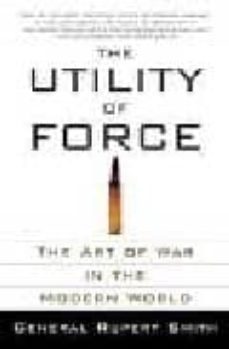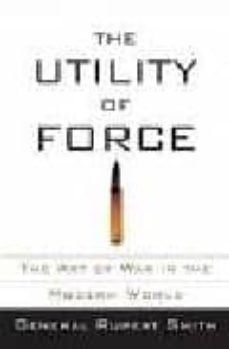Imprescindibles
Ficción
No Ficción
Ciencias y tecnología Biología Ciencias Ciencias naturales Divulgación científica Informática Ingeniería Matemáticas Medicina Salud y dietas Filología Biblioteconomía Estudios filológicos Estudios lingüísticos Estudios literarios Historia y crítica de la Literatura
Humanidades Autoayuda y espiritualidad Ciencias humanas Derecho Economía y Empresa Psicología y Pedagogía Filosofía Sociología Historia Arqueología Biografías Historia de España Historia Universal Historia por países
Infantil
Juvenil
#Jóvenes lectores Narrativa juvenil Clásicos adaptados Libros Wattpad Libros Booktok Libros de influencers Libros de Youtubers Libros Spicy Juveniles Libros LGTBIQ+ Temas sociales Libros ciencia ficción Libros de acción y aventura Cómic y manga juvenil Cómic juvenil Manga Shonen Manga Shojo Autores destacados Jennifer L. Armentrout Eloy Moreno Nerea Llanes Hannah Nicole Maehrer
Libros de fantasía Cozy Fantasy Dark academia Hadas y Fae Romantasy Royal Fantasy Urban Fantasy Vampiros y hombres lobo Otros Misterio y terror Cozy mistery Policiaca Spooky Terror Thriller y suspense Otros
Libros románticos y de amor Dark Romance Clean Romance Cowboy Romance Mafia y amor Romance dramatico Romcom libros Sport Romance Otros Clichés Enemies to Lovers Friends to Lovers Hermanastros Slow Burn Fake Dating Triángulo amoroso
Cómic y manga
Novela gráfica Novela gráfica americana Novela gráfica europea Novela gráfica de otros países Personajes, series y sagas Series y sagas Star Wars Superhéroes Cómics DC Cómics Marvel Cómics otros superhéroes Cómics Valiant
eBooks
Literatura Contemporánea Narrativa fantástica Novela de ciencia ficción Novela de terror Novela histórica Novela negra Novela romántica y erótica Juvenil Más de 13 años Más de 15 años Infantil eBooks infantiles
Humanidades Autoayuda y espiritualidad Ciencias humanas Economía y Empresa Psicología y Pedagogía Filosofía Historia Historia de España Historia Universal Arte Cine Música Historia del arte
Ciencia y tecnología Ciencias naturales Divulgación científica Medicina Salud y dietas Filología Estudios lingüísticos Estudios literarios Historia y crítica de la Literatura Estilo de vida Cocina Guías de viaje Ocio y deportes
RUPERT SMITH
Recibe novedades de RUPERT SMITH directamente en tu email
Filtros
Del 1 al 3 de 3
ST. MARTIN'S GRIFFIN 9780307278111
From a highly decorated general, a brilliant new way of understanding war and its role in the twenty-first century. Drawing on his vast experience as a commander during the first Gulf War, and in Bosnia, Kosovo, and Northern Ireland, General Rupert Smith gives us a probing analysis of modern war. He demonstrates why today's conflicts must be understood as intertwined political and military events, and makes clear why the current model of total war has failed in Iraq, Afghanistan, and other recent campaigns. Smith offers a compelling contemporary vision for how to secure our world and the consequences of ignoring the new, shifting face of war.
Ver más
Tapa blanda
ST. MARTIN'S GRIFFIN 9780307265623
"War no longer exists," writes General Sir Rupert Smith, powerfully reminding us that the clash of mass national armies--the system of war since Napoleon--will never occur again. Instead, he argues in this timely book, we must be prepared to adapt tactics to each conflict, or lose the ability to protect ourselves and our way of life. General Smith draws on his vast experience as a commander in the 1991 Gulf War, in Bosnia, Kosovo and Northern Ireland, to give us a probing analysis of modern war and to call for radically new military thinking. Why, he asks, do we use armed force to solve our political problems? And how is it that our armies can win battles but fail to solve the problems? From Iraq to the Balkans, and from Afghanistan to Chechnya, Smith charts a stream of armed interventions that have failed to deliver on promises of resolution. He demonstrates why today's conflicts must be understood as intertwined political and military events. He makes clear why the current one-size-fits-all model of total war, fought out on battlefields, that politicians still cling to must be abandoned in favor of new strategies that take into account the fact that wars are now fought among civilian populations. And he offers a compelling new model for how to fight these battles--and secure our world. Clear, incisive and provocative, "The Utility of Force" will fundamentally change the way we understand war.
Ver más
Tapa dura
PENGUIN 9780141020440
Rupert Smith brings together his long and relevant experience of command in some of the more prickly theatres of conflict in our time in lucid writing to put through the message that the nature of war has changed irrevocably. And the armed forces too have to be reformed and thus prepared for the new conflicts
Ver más
Tapa blanda
Del 1 al 3 de 3


























